Summary
- The second COVID19 wave is dwarfing the first.
- The lockdown will last for many more months and experts are advising yet stricter measures as high dependency beds and ITU beds are overloaded.
- It is important to do everything we can to avoid infection and to get as ready as possible in case we do.
- Pre-habilitation is worth exploring – how to get as fit as possible to improve our resilience and outcome. This post explains how.
Introduction
Well, the daily figures available here continue to make for unhappy reading. The news and media are full of heart-aching stories from the front line critical care services which are slowly becoming overwhelmed in some areas. The new variant B117 seems to be spreading more rapidly, although at least some of the increase would have happened anyway. Thankfully, experiments suggest it, and the 5012y.V2 variant from South Africa, remains susceptible to at least Pfizers vaccine, and by implication the others too.There are good grounds for optimism.
However, vaccines won’t have much impact for a while on Intensive Care beds occupancy, the driver of policy. This is because vaccines have been targeted initially at the over 80’s to save lives, while the majority of ITU beds are occupied by those under 70.
So what can we do to both get ready for COVID19 and get through another and potentially longer lockdown?
As I wrote at the beginning of the pandemic getting ready for COVID can be thought of as similar to preparing for other health challenges such as an operation, or any physical or mental challenge, but has some unique features.
Rehabilitation is what you do to recover.
Pre-habilitation means doing everything to ensure we are as physically and mentally ready as we can be for infection. Bit like training for any sport, or just trying to get as healthy as possible.
This carries the message of hope than many of us can improve our chances of not only doing well, but also ending up immune, either with a manageable infection from which we have recovered, or vaccination. (Or both)
While I dislike those “10 things you didn’t know about your health” sort of titles, but I cant help but encapsulate Pre-hab in the same sort of way. The basis of what I said a year ago hasn’t changed much, but is worth looking at once again. Ii shall be as brief as I can, the highlighted text takes you to more detail if you wish.
So what can we do to help ourselves, stay healthy and stay out of hospital……
1. Avoid the virus
I can only echo calls from the front line to do what we can to avoid the virus at all – that means less human contact. The 2m rule makes sense, so does isolation to whatever extend we can manage it. Washing hands with warm soapy water kills the virus and wearing masks is a sensible, effective way of preventing spread to or from other people.
Reading recently that cases in Cornwall are increasing, and that there are 15, yes, fifteen ITU beds in the county is a cause for reflection. More can be created, but it’s harder to create staff and support from nowhere. Services, pared down for years, mean available beds can soon be filled.
In Devon we are very lucky to have a dispersed population and like everywhere, cases are concentrated in cities and towns. But when it comes to damping down viral spread, infections and hospital admissions, it’s one for all and all for one. It seems inevitable that rates of infection are going up, and Intensive care beds are being occupied with patients from other regions whose beds are full. So simple hygiene matters for ourselves and everyone around us.
2. Avoid accidents or going to hospital where possible
This is a pretty bad time to be going to hospital for any reason, and avoiding accidents is more important than usual. I considered this when using a hedge-cutter or walking on a frozen Dartmoor – I really would feel most embarrassed if I ended up in A+E with any preventable injury or accident.
Now is not the time for risky sports or hobbies or any other activity involving postponable risk. Driving and cycling needs extra care too. Perhaps leave mending that gutter till later in the year?
3. Take Vitamin D and get sunshine when you can.
I have posted on this quite a few times and pending the definitive Randomised Controlled Trial, not only does it makes perfect sense to take Vitamin D3, 5000iu daily, I would say its essential! This is a fraction of the dose we receive on a sunny summers day and many times more that is needed to avoid rickets, the most alarming consequence of Vitamin D deficiency.
While the Government seems scandalously behind the curve on this one, the science is simple. We are designed to be outdoors pretty much all the time, all the year. That not being the case, levels of Vitamin D are very low in all modern populations. Vitamin D has important immune functions and the optimum function of our immune system is essential for defending ourselves against COVID19. If your diet is poor, magnesium and Vitamin K2, may needed to get the best out of Vitamin D, click here for more info on that.
More and more evidence is accumulating that Vitamin D can make a difference in how our immune system is functioning and this has even been highlighted in an article in the Observer as I write. I hope everyone is taking this, though I’ll bet millions are not. Yet, COVID19 patients have lower Vitamin D levels and those with low levels do worse. A trial of a fast acting Vitamin D in Spain showed improvements in outcome for those given Vitamin D.
I just can’t emphasise enough how important it is to have normal levels of Vitamin D in your blood when you encounter Sars-Cov2. This applies even more if you has a dark skin. Please pass this information on to others. For more information, click here.
4. Exercise and look after your lungs.
There has never been a better time to stop smoking. Vaping can be a half way house for many but has its consequences too. Smokers lungs are chronically inflamed and this is a bad baseline when facing infection and inflammatory overload from viral pneumonia.
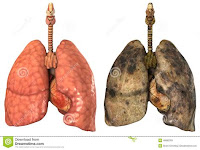 |
| Guess which lungs are the smokers! |
It can be tough to quit, more so when we are stressed and anxious, but it can be helped by the thought of COVID targeting our lungs – which it does. It can be done. As an ex-smoker I remember well how quickly my lungs cleared and my fitness increased – goodbye to the morning cough and rattles in the chest – symptoms of smoking you really don’t want to be a part of your normal life and Im sure would make any respiratory illness worse.
Quitting is the best health decision any smoker can make.Click here for more information and encouragement.
Beyond ending the poisonous effects of smoking, exercise to increase fitness and general as well as lung health brings its own benefits. It might be tough for some with restrictions, but take the opportunity to build whatever activity you can build into the daily routine. The ability to tolerate being short of breath helps and the benefits of exercise go beyond clearing COVID19. For the elderly and those at particular risk, even a short walk is a lot better than nothing.
A little exercise can reduce the risk of respiratory infections and regular exercise, which thankfully does not have to be that strenuous, can increase the level of white blood cells in the blood. Doubling the amount of light activity brings big benefits too. This is a positive message, you don’t have to put on the lycra, or go to the gym, or run a marathon, just build in as much movement and activity into the daily routine as you can.
5. Eat well
“This evidence suggests excess weight is associated with an increased risk of the following for COVID-19: a positive test, hospitalisation, advanced levels of treatment (including mechanical ventilation or admission to intensive or critical care) and death. The risks seem to increase progressively with increasing BMI above the healthy weight range, even after adjustment for potential confounding factors, including demographic and socio-economic factors.”
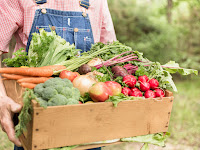 |
6. Fasting – how we eat.
There are significant benefits to fasting, whatever way you choose to do it. In terms of weight loss if you need this, but also simply feeling better as the metabolism starts to use stored fat as an energy source. This helps anyone who tends to put on weight easily keep weight off
7. Take care with alcohol
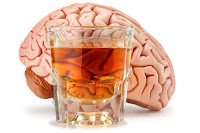 |
| An unhappy relationship |
8. Look after your mind
9. Sleep well.
10. Hope for the best, plan for the worst.
It is important to remember that the vast majority of us will not be too troubled by COVID19. Risks increase with age, with weight and for those with certain pre-existing illnesses, if you have dark skin, possibly with a bigger viral load and of course, just plain old fashioned bad luck.
 |
| Reducing risk can be easier than this! |
If you have chest problems or feel vulnerable, a pulse oximeter, a simple and cheap device which measures oxygen in the blood, can be useful in terms of when to know to get help. Click here for more information.
For most of us this means a quick thought about arrangements for looking after children and pets if admission is ever contemplated. Its always good to have a Plan B. For some it might mean making harder decisions about what sort of treatment you want. For everyone, taking a mobile phone and charger to hospital is a must.
For those who have no choice…..
Many healthy choices are limited for many people. Living in polluted areas, poor housing, crowded households, low pay, and stressful lives are not a matter of choice for many. The isolation needed to avoid spreading the virus is not possible for many people with no savings and lies behing some of the failure of our pandemic management. We live in a sick society and our leader have not been able to rise to the challenge, here or abroad.
Poverty is defined by the constant worry about how to make ends meet and is ever more common. We need a fundamental re-boot of society to address this and I cannot help by think the undeserved, accumulating wealth has got to be tackled.
Habits of smoking and drinking are easily ingrained. Cheap, poisonous food is all many people can afford and in some areas all you can get. Millions of people are struggling financially and emotionally, and the young are particularly hit by all the impacts of reductions in the human contact so essential for their lives.
Nevertheless, everyone can do something to get through this. Stopping smoking and cutting down alcohol saves money. Eating well can be done on a budget and money can be saved by avoiding food that makes us sick. (For example, two cans of Coke a day = £250/year) Exercise and healthy activity can be free and built into day to day life. Walking is and excellent exercise and costs nothing. Mediation and mindfulness too are free.
We all have some choices, and for those in the vulnerable groups in particular, it has never made more sense to choose the healthy options.
I hope this post helps make you think about doing anything that can be done. Sitting back and waiting can be such a difficult experience. My experiences of the considerable benefits of taking a positive, active approach to lifestyle with MS makes me realise how important this can be for us to get through COVID19, for our families, the NHS, the wider environment and our future.
Good Health!
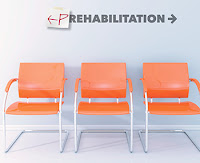
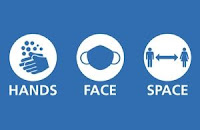

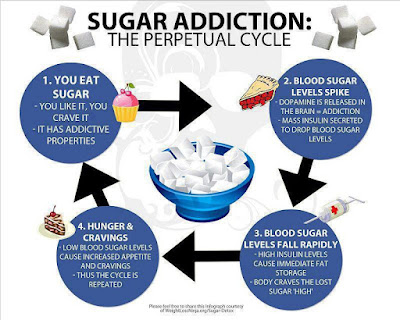


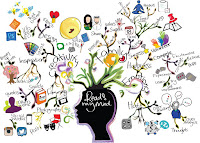



So good to have people like you taking the time to really understand this and to help spread the word of some solid information. Thanks
Thank you once again Dr Colin for an informed and empowering blog. I always feel so much better after reading them.